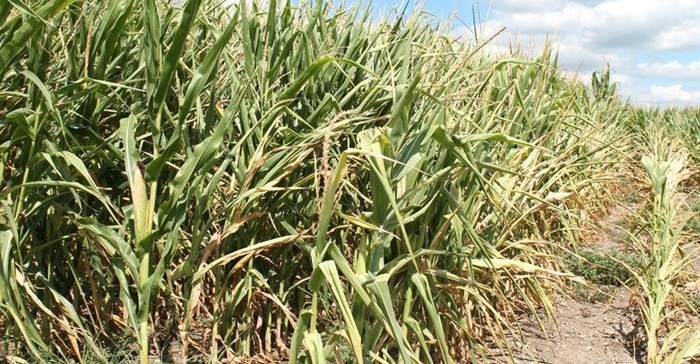
Top stories


Marketing & MediaWarner Bros. was “nice to have” but not at any price, says Netflix
Karabo Ledwaba 16 hours



Logistics & TransportMaersk reroutes sailings around Africa amid Red Sea constraints
Louise Rasmussen 9 hours

More news


















With an estimated half of the population unable to afford even basic foodstuffs, those who can afford them are resorting to stockpiling, say aid agencies and food and agricultural experts.
For nearly 14-million people, maize is the only staple they can buy - but its price has risen by 150% to R5000 a ton, says FoodBank SA. Last year it sold for R2017/t.
The rising maize price will have a major knock-on effect on the cost of other foods.
"Meat is likely to increase from R40/kg to R80/kg.
"We predict a food revolution because food will be unaffordable," said Frans van der Bergh, a farmer and president of Agri-Gauteng.
"The violence will be around access [to food] in regions where it is scarce and where there are transport difficulties in getting the food to the people who need it most," said Professor Mary Scholes, of Wits University's animal, plant and environmental sciences department.
"There's concern that some merchants will stockpile food, withhold it and make it available at higher prices only later in the year," she said.
For many the reality of food shortages has not yet hit home, she said.
Rob Small, founder of the Farm and Garden National Trust, said 80% of households did not use their land for growing food.
"Given the current situation, micro-family farming has to be revived. Rising food prices severely affect nearly half the population, who spend up to 70% of their money on food," Small said.
"Large portions of the population could soon be in very real trouble. Low-income households cannot survive and we are balancing on a fine line. The middle class is simply not big enough to support those relying on the government for their survival."
Rising prices would force people into micro-farming, Small said.
"But, by the time people realise that they cannot rely on the government, it will be too late, especially as it takes three months to get a food garden fully productive.
"People will stockpile only once it's too late. Then there could well be a rush [for food]. It's now a question of how long people can endure these price increases," Small said.
Paula Barnard, spokesman for World Vision, said the crunch would come in March and April.
"That's when the rains are expected. If we don't have rain by then, we will face disaster."
She said World Vision was expecting social and labour unrest because of food shortages and high prices.
"There will be exploitation by those who can afford to stockpile food of those who cannot."
"[People in neighbouring countries] have learned the meaning of stockpiling food, whereas we have relied on being able to buy everything, which is why we will be hit so hard," Barnard said.
Source: The Times